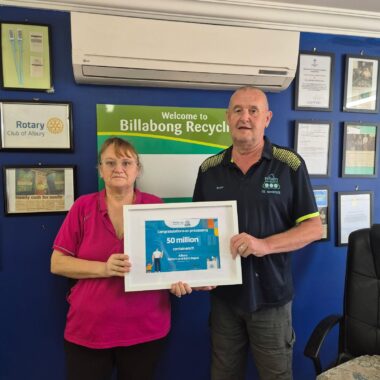- City of Sydney has passed a motion, supported by 8 out of 10 councillors, which kickstarts the process to require new homes and businesses across the municipality to be all-electric and gas-free.
- The move has been welcomed by health professionals and climate change organisations
- New analysis shows this move could save new households in the City of Sydney an average of $430 per year on their energy bills. This totals to $256 million for all new homes across the City over the a typical 40-year life of a dwelling.
- The analysis also shows that the City’s decision could reduce carbon emissions across the City by 1.7 million tonnes over the same 40 year period, totalling 24.1 million tonnes for the entire state if all NSW councils on the gas network followed Sydney’s lead.
- Sydney now joins Waverley and Parramatta Councils, plus the Victorian and ACT governments, who have all recently passed laws which ban gas from new developments. The NSW premier has so far ruled out similar action for the state.
On Monday night, the City of Sydney council passed a motion which kickstarts the process to require new homes and businesses across the municipality to be all-electric and gas-free. The motion, moved by Cr (Waskam) Emelda Davis, and seconded by Deputy Lord Mayor, Sylvie Ellsmore, will insert new clauses into the council’s planning rules to require new homes and businesses, including apartments, to include electric appliances like stoves, cooktops, heaters and hot water units, instead of gas ones.
According to new research conducted by Strategy Policy Research and commissioned by 350 Australia, the move could save every new household that’s built in Sydney an average of $430 per year on their energy bills. This equates to more than $5,500 in today’s dollars over a typical 40-year life of a dwelling, totalling $256 million for all new homes across the City over the same period. At a state level, the savings are $3.7 billion for all new homes over the same period.
This move is also a win for the environment, which could save 1.7 million tonnes of carbon emissions compared with business as usual over 40 years, based on the same analysis. If every NSW council currently connected to the gas network followed Sydney’s lead, together they could avoid 24.1 million tonnes of carbon emissions over the same 40 year period.
The motion was in response to grassroots climate organisation 350 Australia’s ‘Electrify Your Council’ campaign, and comes after Premier Chris Minns said he wouldn’t follow Victoria’s and the ACT’s lead in banning gas connections to new homes.
The Sydney Council motion follows Waverley and Parramatta Councils who recently passed new planning rules that prevent gas appliances in new homes and businesses.
The move from Sydney Council is the latest in a wave of momentum sweeping across the state. Tired of waiting for the state government to act by delivering all-electric new developments that are free from toxic, polluting gas, these councils are taking the issue into their own hands and leading the way.
According to 350 Australia, councils across NSW are likely to follow Sydney’s leadership, adding political pressure on the Minns government for a state-wide ban on gas connections to new buildings.
Lucy Manne, CEO at 350 Australia said, “Gas is a potent, fossil fuel that is accelerating the intersecting human and ecological crises caused by a heating planet. We need to end the age of fossil fuels now and we can start by eliminating toxic methane gas from our homes, shops and businesses.
“Only developers and gas corporations benefit from keeping our homes and businesses connected to gas.
We congratulate the City of Sydney for taking bold climate leadership and taking action where the state government is falling behind.”
Dr Ben Ewald, Senior Lecturer in Epidemiology and member of health advocacy organisation, Doctors for the Environment said, "The flames of a gas stove or heater release toxic chemicals that cause asthma in susceptible people. Everyone with a gas stove should open a window or turn on an extractor fan every time they light it. Not connecting to gas in the first place is a better option, as all uses of indoor gas now have a better electric alternative."
Bronwyn McDonald, NSW Campaigner for Healthy Futures, an alliance of health organisations said, "A child living with a gas stove faces a similar asthma risk to a child exposed to secondhand cigarette smoke.
“To protect vulnerable people like children, the elderly and people with medical conditions, health professionals call on the state government to urgently phase out gas from buildings like homes, schools and hospitals.”
ENDS
The analysis of cost and emission savings by Strategy Policy Research is available here: https://350.org.au/files/2023/08/Analysis_-City-of-Sydney-ban-on-new-gas-connections-3.pdf
Media contact:
Lucy Manne, 350 Australia, 0417 387 516 | [email protected]
Available for interview:
Lucy Manne, 350 Australia, 0417 387 516 | [email protected]
Bronwyn McDonald, Healthy Futures, 0408 477 403 | [email protected]
Carmela Ferraro, Doctors for the Environment, [email protected]
Philip Harrington, Strategy Policy Research, 0419 106 449 | [email protected]

